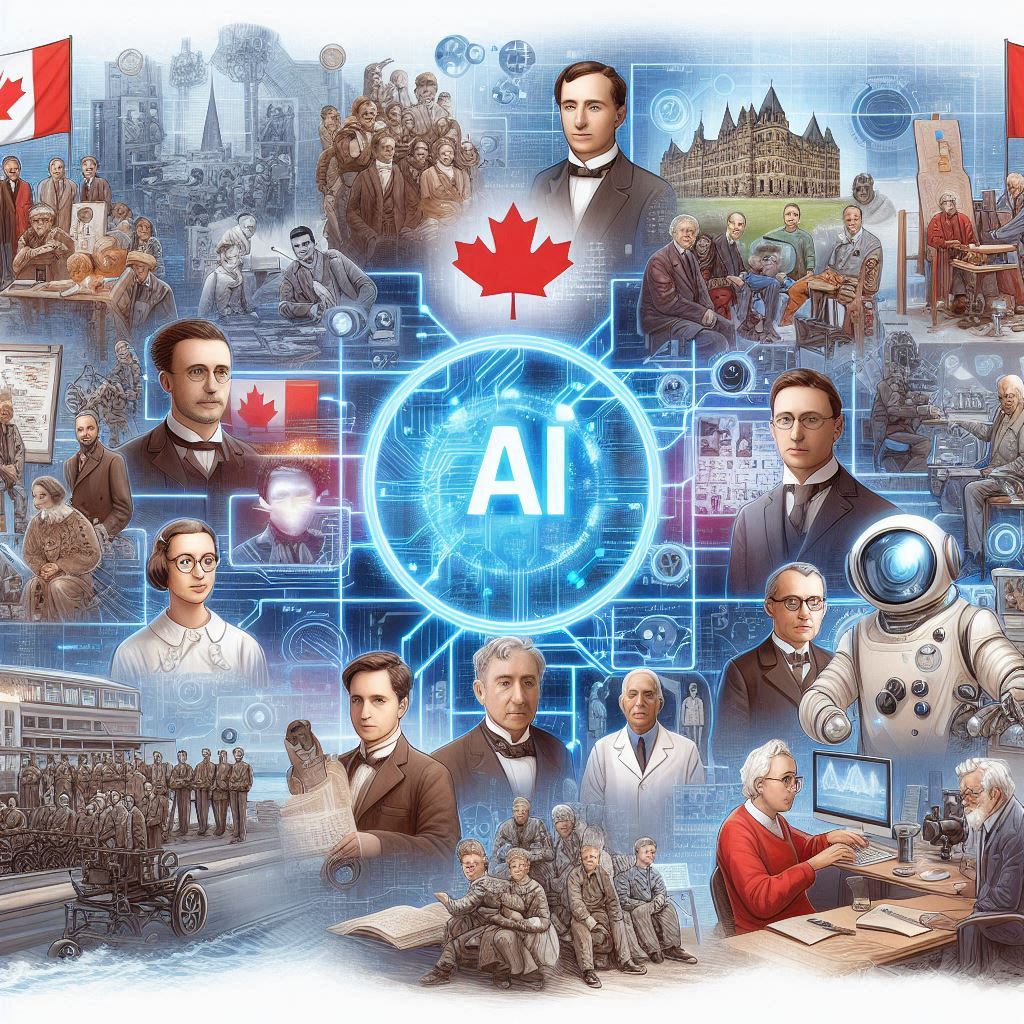the evolution of artificial intelligence in canada: from early beginnings to a global leader
Artificial Intelligence (AI) has become a driving force behind innovation and transformation in numerous sectors worldwide. Canada, with its rich history and dedication to technological advancement, has played a pivotal role in the development and responsible deployment of AI. This blog post explores the fascinating journey of AI in Canada, highlighting significant milestones, key contributors, and the nation’s ongoing commitment to ethical AI practices.
historical background: the roots of AI
Long before the advent of electronic digital computers, the concept of machines capable of human-like intelligence captured the imagination of thinkers around the world. Early myths and legends, such as the Greek figure Talos and the Jewish Golem, reflect humanity’s fascination with creating artificial beings. Mechanical automata, developed in various cultures, further fueled this curiosity.
With the development of electronic digital computers in the 1930s and 1940s, scientists began to explore the possibility of replicating human intelligence through machines. Alan Turing, a pioneering figure in computing, proposed the Turing Test to determine whether a machine could exhibit intelligent behavior indistinguishable from that of a human.
the birth of AI research in canada
Canada’s journey in AI research began in the mid-20th century with the use of electronic computing for tasks previously reserved for the human mind. Early Canadian contributions include the MÉTÉO system, developed at the Université de Montréal, which translated weather forecasts and remained in use until 2001. The founding of the Canadian Society for Computational Studies of Intelligence (now the Canadian Artificial Intelligence Association) in 1973 marked a significant step in formalizing AI research in the country
from golden age to AI winter
The 1980s brought renewed interest in AI with the emergence of “fifth-generation” computing in Japan and Europe. Canada recognized the importance of AI research for its future and established the Canadian Institute for Advanced Research (CIFAR) in 1982. CIFAR’s Artificial Intelligence, Robotics, and Society program, launched in 1983, supported groundbreaking research and collaboration between academic and industry researchers.
Despite initial successes, the high cost and limited feasibility of AI applications led to the first “AI Winter” in the mid-1970s, as government funding for AI research was scaled back. The late 1980s saw a second “AI Winter” as the market for specialized AI systems collapsed.
the rise of machine learning and deep learning
The 1990s and 2000s marked a resurgence in AI research with the rise of machine learning (ML) and deep learning. Canadian institutions, supported by CIFAR, became global leaders in these fields. Notable figures such as Geoffrey Hinton, Yoshua Bengio, and Rich Sutton spearheaded groundbreaking research that has had a profound impact on AI development worldwide.
The establishment of CIFAR’s Neural Computation and Adaptive Perception program in 2004, under Hinton’s direction, catalyzed scholarly work in deep learning. The program brought together experts from computer science, biology, neuroscience, and psychology to advance AI research.
canada’s AI strategy: a global leader
In recent years, Canada has solidified its position as a global AI leader through strategic investments and initiatives. The 2017 federal budget allocated $125 million for a Pan-Canadian Artificial Intelligence Strategy, coordinated by CIFAR. This strategy led to the creation of AI institutes such as the Alberta Machine Intelligence Institute (AMII), the Vector Institute in Toronto, and the Montreal Institute for Learning Algorithms (MILA).
These institutions have attracted top talent from around the world and fostered collaboration between academia, industry, and government. Canada’s commitment to ethical AI development is reflected in initiatives such as the Montreal Declaration for a Responsible Development of Artificial Intelligence, which outlines principles for ensuring AI benefits all of humanity.
canadian AI companies: innovators and leaders
Canadian companies have translated AI expertise into robust business applications. Success stories include Maluuba, a company founded by graduates of the University of Waterloo, which was acquired by Microsoft in 2017. Borealis AI, a research center founded by the Royal Bank of Canada, applies machine learning to financial services and has offices in multiple Canadian cities.
Other global digital firms, including Facebook, Google, and NVIDIA, have established research centers in Montreal and Toronto. These companies are leveraging Canada’s AI expertise to develop cutting-edge technologies and drive innovation
opportunities and challenges of AI
AI technologies are increasingly integrated into everyday life, offering numerous benefits in commercial and government contexts. From virtual service agents to intelligent data analysis, AI has the potential to enhance productivity, improve service delivery, and facilitate new insights.
However, AI also presents challenges, including job displacement, privacy concerns, and the potential for bias in machine learning systems. Canadian researchers and policymakers are actively addressing these issues to ensure AI technologies are developed and deployed responsibly.
conclusion: canada’s ongoing commitment to AI excellence
Canada’s journey in the realm of artificial intelligence is a testament to the country’s dedication to innovation, ethics, and excellence. From early automata to cutting-edge machine learning research, Canada continues to shape the future of AI. As AI technologies evolve, Canada remains at the forefront, driving progress and ensuring that AI serves the greater good.
References: For more information on the history and development of Artificial Intelligence in Canada, you can read the full article here.
